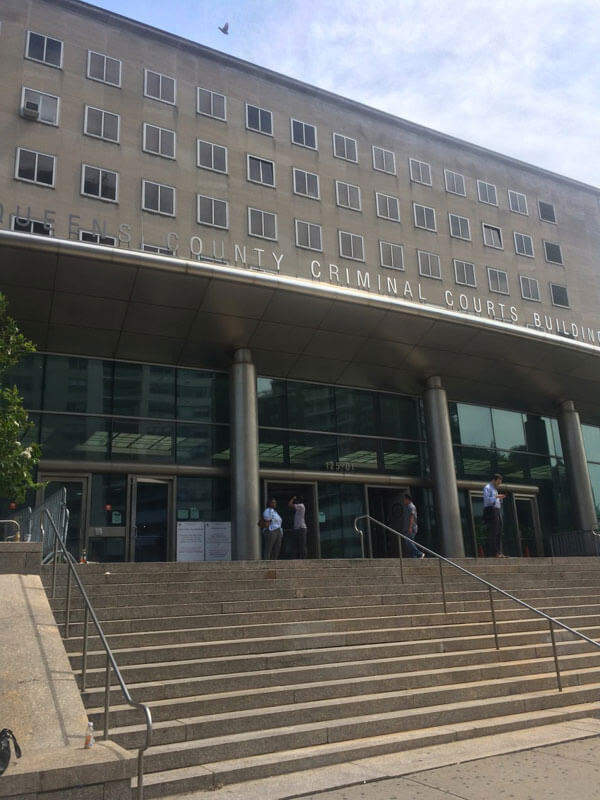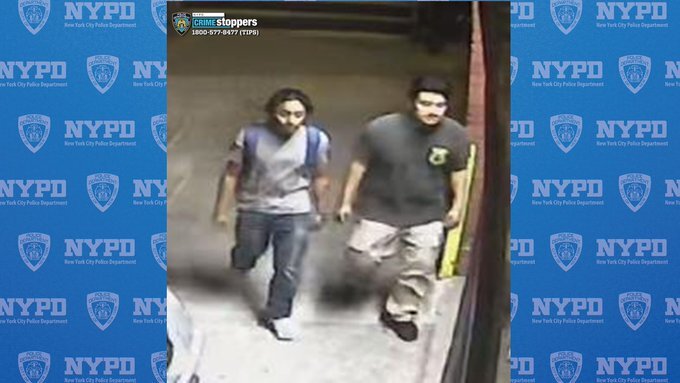By Naeisha Rose
A jury found City Councilman Ruben Wills (D-Jamaica) guilty of five counts of corruption late Thursday after deliberating for two full days.
Wills was accused of defrauding the city and the state of a combined $30,500 by allegedly creating a shell company, Micro Targeting, to siphon off campaign and grant money, which was meant to go to his charity, New York 4 Life, according to state Attorney General Eric Schneiderman. He was charged with taking the money to buy gas, food and clothes for himself, including a Louis Vuitton bag.
The councilman was convicted of one count of scheming to defraud, two counts grand larcy and two counts of offering a false instrument for filing, a spokesman for the attorney’s general office said. He was exonerated of falsifying business records, spokesman said.
The money that the city Campaign Finance Board and the state Office of Children and Family Services provided him was to support programs for the not-for-profit, which doubled as a campaign platform for the councilman, who represents South Ozone Park, Rochdale and parts of Jamaica. Instead he is facing charges of grand larceny and falsifying business records to conceal how the money was allegedly transferred to his own pocket.
In his closing arguments Tuesday, Assistant Attorney General John Chiarro went over Wills’ contract with the state and Chase Bank statements that he said showed how Wills allegedly used the money for personal use.
“He is stealing thousands and thousands of dollars that are meant to help them,” said Chiarro as he pointed to Wills’ supporters in the gallery. “He’s not going to get away with this because you are going to hold him accountable,” he told the jury.
Chiarro went over the contract start and end date for the money that the state gave to Wills to spend on a childhood obesity program, a single mothers’ banquet, a single fathers’ luncheon and public cleanup under the auspices of his charity.
Wills’ goddaughter, Michelle Davis, was called as a witness for the prosecutor about her role in Wills’ campaign. The councilman said she did data entry work for the obesity program, but Davis testified she only worked for the election campaign.
Chiarro cited a check written to Davis for data entry work on the obesity program that had a memo attached for NY4Life. But Wills’ goddaughter said she did not do the data entry work but still cashed the check. Chiarro contended this showed that the defendant falsified records and committed fraud.
“What kind of man drags his own goddaughter into this?” Chiarro asked.
He later produced bank statements of the stores where the councilman spent money during the time frame of the contract. The stores were Victoria Secret, McDonald’s, Exxon Mobile, Dunkin Donuts, Macy’s, Walmart, AmTrak, Staples, and T-Mobile to name a few.
“There is not a single documentary evidence that he spent one penny on the events for people in southeast Queens. He spent it on himself,” Chiarro said.
Wills’ defense attorney, Kevin O’Donnell, said the prosecution had not proven anything.
“I’ve impeached all his witnesses,” he said. “The witnesses were telling lies. He is fighting for his life here.”
He singled out Wills’ goddaughter, who cashed the checks from the councilman but told the court she did not know where the money was coming from.
“She said she never heard of New York 4 Life,” O’Donnell said. “She said that she did the work, but she doesn’t remember what she did.”
Supporters of Wills whispered that she could not have done campaign work because he was elected during a special election after his predecessor Thomas White, Jr. died unexpectedly in August 2010.
Joe Morrissey, a former auditor at the attorney general’s office, said Wills “enriched himself with $20,000,” according to O’Donnell as he read his testimony. The lawyer later asked the jury why the councilman was not charged with tax evasion.
Shawn Garrick, a friend of Wills for over 30 years, testified he was not aware that he was named as an executive director of the councilman’s charity or that New York 4 Life received a $33,000 grant.
When Garrick was on the stand the previous week, he said “he could not remember” being in board meetings with Wills, O’Donnell said, even though Wills’ chief of staff had testified that Garrick did attend board meetings.
Later O’Donnell ripped up a giant easel pad of the charges and threw it in a garbage can.
“This is what the prosecution is, garbage,” O’Donnell said.
Afterward, both sides rested their cases and asked the jury to “use their common sense” in their deliberations about Wills’ guilt or innocence.
Wills faces up to seven years if convicted, according to the judge.
Reach reporter Naeisha Rose by e-mail at nrose

































